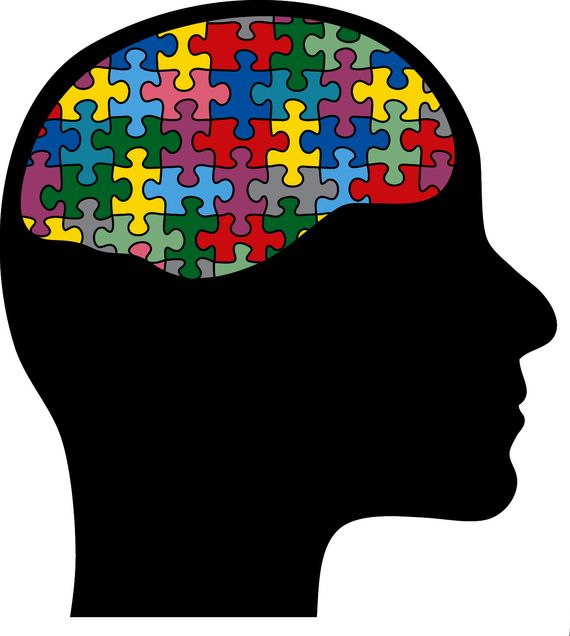Tagged: autism
New Research Suggests a Prenatal Cause and a Possible Treatment of Autism
For years, the brain of a child with autism has been a mystery. Doctors and parents wondered about the cause of autism, and it seemed that they would never get those answers. Autism is characterized on a spectrum with various expressions of difficulty with social interaction including difficulty with verbal and nonverbal communication. Children with ASD (Autism Spectrum Disorder, the official title of ‘autism’ after the May 2013 publication of the DSM-5) are associated with difficulties with motor coordination, attention, intellectual disabilities, and physical health problems like sleep and gastrointestinal problems. Autism is usually presented by age three and the process of diagnosing autism continues to change, according to the Autism Speaks foundation.
Dr. Thomas R. Insel, director of NIMH at the NIH says that “while autism is generally considered a developmental brain disorder, research has not identified a consistent or causative lesion.” The newest reports show that the architecture of the autistic brain is “speckled with patches of abnormal neurons.” In the study published in the New England Journal of Medicine, there is evidence that the brain irregularities of children with autism are due to abnormal prenatal development.
Autism Signs May Appear in First Months of Life
 Before babies can crawl or walk, they explore the world around them by looking at it. This is a natural and necessary part of infant development, and it sets the stage for future brain growth. By using eye-tracking technology, scientists were able to measure the way infants look at and respond to different social cues. This new research suggests that babies who are reluctant to look into people’s eyes may be showing early signs of autism.
Before babies can crawl or walk, they explore the world around them by looking at it. This is a natural and necessary part of infant development, and it sets the stage for future brain growth. By using eye-tracking technology, scientists were able to measure the way infants look at and respond to different social cues. This new research suggests that babies who are reluctant to look into people’s eyes may be showing early signs of autism.
The researchers at Marcus Autism Center, Children's Healthcare of Atlanta and Emory University School of Medicine followed babies from birth until age 3, and discovered that infants later diagnosed with autism showed declining attention to the eyes of other people, from the age of 2 months onwards.
Using the Ipad To Help Autism
Social interaction and communication are essential characteristics of the human experience. As humans, we desire to create and develop relationships with each other. Autism Spectrum Disorder (ASD) is a neurological developmental condition that impairs this ability to relate. The spectrum refers to the fact that there are multiple conditions characterized by similar features all grouped together under this one disorder. These conditions include “classic” autism, Asperger syndrome, and Pervasive Developmental Disorder Not Otherwise Specified. There are also varying degrees of severity associated with ASD. So, depending on the disorder and degree to which a person suffers from this disorder, there is truly a wide spectrum of possible conditions created by ASD that many people around the world must deal with. More
The Odd Couple: Autism + Anorexia?

The Odd Couple via Omahype
Have you ever considered there to be commonalities between autism and anorexia? Up until a few weeks ago, the idea never crossed my mind. I was more focused on how that other autism study about vaccines was proven to be a complete hoax.
On February 10th, researchers at the University of Bath in England released some information on an upcoming paper that is to be published in the British Journal of Clinical Psychology. Dr. Mark Brosnan and the rest of his research team have possibly found a correlation between autism and eating disorders. Although there have been hints to this relationship in clinical settings (the news blurb refers to women diagnosed with eating disorders producing high scores on a "questionnaire that measures characteristics associated with Autism Spectrum Disorders (ASD)"), no formal research had been performed to test the strength of the relationship between the two diseases.
Dr. Brosnan studied 61 boys and 71 girls between the ages of 11 and 14 to make up a total of 132 children. His reasoning for testing this age group was to see if there was a correlation between the two disorders at a young age in a "non-clinical population." All of the students filled out questionnaires that examined their characteristics and how strongly they relate to autism and eating disorders. The to be published results suggest that there is indeed a link between the two disorders, and the relationship is especially strong between "eating disorder, attention to detail and communication skills."
In addition to the results of the research being simply interesting, Brosnan has stated that finding this relationship is key since "'The application of one research area to another may contribute to a better understanding of both clinical conditions.'" Brosnan then goes on to describe how autism is seen as a disorder that mainly affects men, and eating disorders mainly affect women. However, his research shows that high scores relating to "attention to detail" and "poor communication skills" were found the most among those who expressed the largest tendencies toward eating disorder. High scores in these two areas of the autism assessment were the greatest predictor of a high score on the eating disorder assessment, not sex of the student.
This paper has yet to be published, so more complex questions about the study will remain unanswered until the research is officially published. However, these implications prove to be very intriguing. Keep an eye on it. I know I will.
Eating disorders linked with autism in school children - University News of the University of Bath
